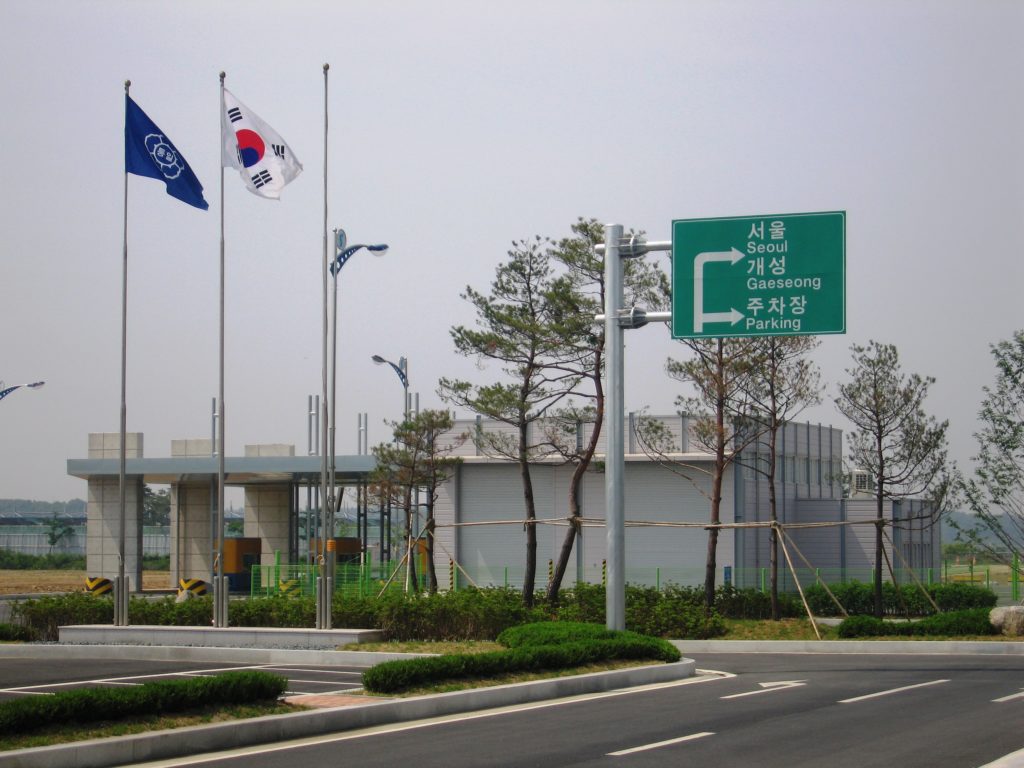The Peninsula
The Prospects for Inter-Korean Economic Cooperation after Kim Jong-il
Published January 27, 2012
Category: Inter-Korean

By Yu, Byoung-gyu
The sudden death of North Korean leader Kim Jong-il has increased uncertainty regarding the future of inter-Korean economic cooperation. The prospects for economic cooperation between the two Koreas can be considered from both short term and a medium to longer term perspectives.
In the short term, deadlock on economic cooperation will likely continue. North Korea needs to work to stabilize the new political regime under Kim Jong-un and to promote the policies of necrocracy, while in the current environment, South Korea lacks much impetus to try and increase its economic relations with the DPRK.
But from a mid-to long-term perspective, it is plausible that economic cooperation between the two Koreas could be revitalized in a stronger way than ever seen before. The North Korean government needs this cooperation to sustain itself, and in realizing the goal of creating a “strong and prosperous nation”. It is absolutely essential for North Korea to present a long term vision to resolve its basic economic difficulties. In the months preceding his death, this may have been why Kim Jong-il focused so much time in visiting sites related to economic activity.
In 2011, Kim Jong-il made a total of 143 public visit around the country in which he made 59 economic visits (41.3%), 39 military visits (27.3%), 16 visits related to foreign affairs, (11.2%), and 29 visits in the category of “other” (20.3%). It is anticipated that North Korea will proceed in expanding the limited reforms and in opening up the economy to secure foreign capital and improve people’s living standards. In particular, as the “guardians” of Kim Jong-un, people like Jang Sung-taek (constructed 100,000 housing units in Pyongyang, led development in Hwanggeumpyeong and Nason, visited Seoul as economic inspector), Kim Kyong-hui (Director of the light industry Department of the Worker’s Party of Korea), and Kim Yang-gun (Director of the United Front Department of Chosun), are all expected to have significant interest in areas such as securing foreign capital and improving people’s living standards.
Economic improvement in North Korea is also very important to the South, potentially helping to alleviate tension and bring peace to the Korean Peninsula. Additionally, cooperation would provide the economy of the South with a new dimension for economic growth. Above all, cross-border cooperation will help expand domestic demand. The volume of domestic demand is determined by the size of population as well as income levels. A nation is required to secure a certain level of population in order to independently manage its own economy while promoting industrial development. However, South Korea`s population is declining due to its record-low birthrate. If inter-Korean economic cooperation is stimulated, a market with a population of nearly 100 million consumers can be secured. It will offer new hope for light industries and small to medium-sized companies, which have deepened an economic bipolarization due to their falling competitiveness. In fact, some textile and footwear manufacturers which invested in China or Vietnam after securing competitiveness and profitability at the Gaeseong Industrial Complex in North Korea, are now showing signs of relocating their operations back to the Korean peninsula. At the Gaeseong complex, a project that marries South Korean capital and technology with cheap labor from the North, South Korean companies produce clothes, utensils and watches, as well as electronic and machinery parts, employing more than 47,000 North Korean workers.
The creation of new demand will also ease excess supply concerns of the South Korea’s key industrial players, including manufacturers of steel, cars and ships. Geopolitical risks on the Korean peninsula can also be reduced if the two Koreas increase economic dependence on each other, as evidenced by the relations between China and Taiwan. These two countries have steadily expanded bilateral economic cooperation in spite of their prolonged military confrontations. They eventually signed the Economic Cooperation Framework Agreement, accomplishing the so-called “Chi-wan” (China+Taiwan) economic integration. The deepening of economic interconnections will ultimately help eliminate ideological confrontations by increasing the opportunity cost caused by military conflicts.
It will be important to have enthusiasm and willingness to maintain and expand inter-Korean economic cooperation under a strategy to promote the sustained prosperity of the Korean nation in the future. Regardless of political party, faction and ideology, mid- to long-term visions and strategies for inter-Korean economic cooperation should be established and faithfully carried out. Like China-Taiwan relations, the two Koreas should take advantage of practical strategies and measures to fully guarantee business cooperation regardless of mounting military tensions. In fact, the activity of private enterprises should be used to ease military tensions and safeguard communication channels. In order to ripen the environment for inter-Korean economic cooperation, it is essential to foster working-level experts on North Korea rather than political theorists.
Multilateral measures should be also pursued to enhance international cooperation to ensure the success of inter-Korean economic cooperation. If China, Russia, the United States, Europe and international organizations become involved in various inter-Korean economic cooperation and development projects, they can proceed smoothly regardless of conflicts between the two Koreas. Eventually, the economic cooperation between South and North Korea will and should be increased.
Yu, Byoung-gyu is the Executive Director of Hyundai Research Institute & also a visiting scholar at SAIS
